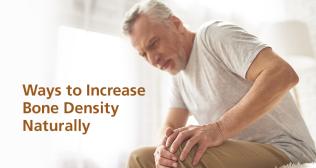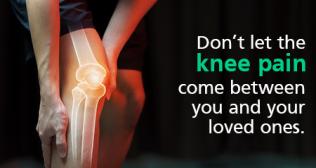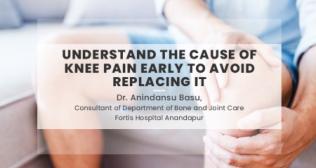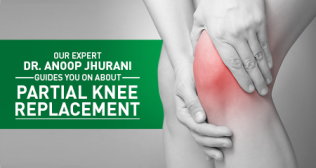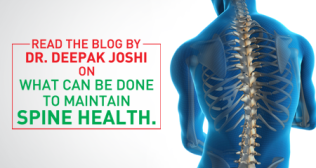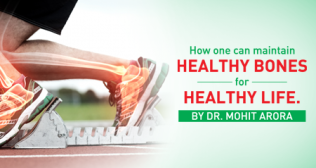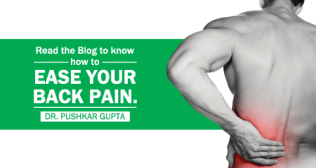
Understanding Shoulder Pain: Reasons, Symptoms, and Treatment
Introduction
We all have experienced shoulder pain at some point, whether from a game, hours spent hunched over a computer, or just waking up on the wrong side of the bed. The discomfort stems from overuse, injury, or underlying medical conditions, and it is vital to understand the causes and treatment strategies that help maintain optimal shoulder health and overall well-being.
Getting to Know Your Shoulder
Let’s get acquainted with the complex marvel that is our shoulder. We’re talking about bones, muscles, tendons, and ligaments, which function like a finely tuned machine.
At the core of the shoulder joint is the humerus (the upper arm bone) that meets the scapula (the shoulder blade) and the clavicle (the collarbone). Surrounding this joint are a bunch of muscles collectively known as the rotator cuff that act as the guardians of the shoulder, providing stability and facilitating a wide range of motion.
The deltoid muscle gives the shoulder its rounded shape and helps lift and rotate the arm. Tendons connect the muscles to bones and ligaments and keep everything in place, while bursa sacs provide cushioning to reduce friction. However, even the best machines can run into a few hiccups, and the shoulder, being no exception, experiences glitches, too, that result in pain.
What’s Behind the Pain?
The multifactorial causes of shoulder pain include musculoskeletal imbalances, traumatic injuries, and degenerative conditions.
- Rotator Cuff Injuries: Tears or inflammation in the rotator cuff muscles can lead to persistent shoulder pain, especially among athletes and individuals involved in repetitive overhead activities.
- Frozen Shoulder (Adhesive Capsulitis): Characterized by stiffness and limited range of motion, a frozen shoulder can significantly impair daily activities and cause chronic discomfort.
- Shoulder Impingement Syndrome: Structural abnormalities or overuse can result in the compression of soft tissues within the shoulder joint, causing pain and discomfort, particularly during arm movement.
- Arthritis: Both osteoarthritis and rheumatoid arthritis can affect the shoulder joint, leading to pain, inflammation, and gradual deterioration of cartilage.
- Bursitis: Inflammation of the bursa sacs can cause localized pain and tenderness, often exacerbated by repetitive or sudden movements.
Who Is At Most Risk?
- Athletes involved in sports with more significant overhead movements, such as basketball, badminton, and swimming
- Overweight people who lead a sedentary life
- People with weak shoulders
- People with diabetes
- Women above 40
When Should You See a Doctor?
Below are the indicators for which you should consult a doctor immediately:
- Severe and persistent pain that doesn’t improve with rest, ice, or over-the-counter pain medication
- Inability to move the arm or if there’s significant weakness or numbness
- In case of a fall, impact, or any other trauma to your shoulder
- Swelling, redness, or warmth around the shoulder joint
- Fever, along with shoulder pain
- The presence of chest pain, shortness of breath, dizziness, difficulty swallowing, and shoulder pain
The diagnosis involves the doctor asking about the pain, past injuries, and activities, checking the shoulder’s movement, strength, and tenderness, and prescribing tests like X-rays, MRI, ultrasound, arthroscopy, or blood work.
How is the Pain Treated?
The treatment landscape for shoulder pain is multifaceted, consisting of multiple modalities tailored to the underlying cause and individual needs. Here’s a brief overview of the primary treatment options:
- Get Moving (The Right Way): Physical therapy isn’t just for professional athletes. Learning the right exercises and stretches can do wonders for the shoulder’s health. Targeted exercises and stretching routines can help strengthen the muscles surrounding the shoulder joint, improve flexibility, and alleviate pain associated with various shoulder conditions.
- Ice It: Minor shoulder pain can be treated at home using an ice bag or ice wrapped in a towel. Icing the shoulder for 15 to 20 minutes a couple of times a day for a few days can help reduce pain.
- Use Medication: Sometimes, medicines can get you back on track. Nonsteroidal anti-inflammatory drugs (NSAIDs), corticosteroid injections, and analgesics may provide temporary relief from shoulder pain and inflammation. Collagen supplements, when administered under supervision, can help heal the tendon faster.
- Chill Out: Sometimes, the shoulder needs a break. In acute injury or inflammation cases, rest and immobilization may be necessary to facilitate healing and prevent further damage to the shoulder joint.
- Surgical Solutions: In some cases, surgery is required to get the shoulder back in action. Surgical procedures such as rotator cuff repair or shoulder arthroscopy are recommended when conservative treatments fail to alleviate shoulder pain or address the underlying structural issues.
Keeping the Shoulders Healthy
Preventing shoulder pain is essential for maintaining functionality, quality of life, and overall health while reducing disability, healthcare costs, and risk of injuries. Some of the preventive measures with significant long-term benefits are as follows:
- Watch Your Posture: Slouching can wreak havoc on your shoulders. Poor posture can cause shoulder pain and dysfunction. Hence, it is essential to maintain a neutral spine alignment and avoid prolonged slouching periods.
- Warm Up, Cool Down: Before engaging in physical activities or sports, it is important to do warm-up exercises and gentle stretches to prepare the muscles and joints for movement.
- Mix It Up: Variety works for shoulders, too. Don’t overdo one activity; rotate tasks and activities to prevent overuse injuries. Include breaks and ergonomic adjustments to reduce strain on the shoulders during repetitive tasks.
- Strength Train: Strength training for shoulders and upper back can go a long way in keeping them strong and resilient. Incorporate strength training exercises that target the muscles of the shoulders, upper back, and core to enhance stability and reduce the risk of injury.
Shoulder pain might be disconcerting, but with the right know-how, you can keep those shoulders healthy and ready to take on whatever life throws at you.
Popular Searches :
Hospitals: Cancer Hospital in Delhi | Best Heart Hospital in Delhi | Hospital in Amritsar | Hospital in Ludhiana | Hospitals in Mohali | Hospital in Faridabad | Hospitals in Gurgaon | Best Hospital in Jaipur | Hospitals in Greater Noida | Hospitals in Noida | Best Kidney Hospital in Kolkata | Best Hospital in Kolkata | Hospitals in Rajajinagar Bangalore | Hospitals in Richmond Road Bangalore | Hospitals in Nagarbhavi Bangalore | Hospital in Kalyan West | Hospitals in Mulund | Best Hospital in India | Gastroenterologist in Jaipur | Cardiology Hospital in India
Doctors: Dr. Rana Patir | Dr. Rajesh Benny | Dr. Rahul Bhargava | Dr. Jayant Arora | Dr. Anoop Misra | Dr. Manu Tiwari | Dr. Praveer Agarwal | Dr. Arup Ratan Dutta | Dr. Meenakshi Ahuja | Dr. Anoop Jhurani | Dr. Shivaji Basu | Dr. Subhash Jangid | Dr. Atul Mathur | Dr. Gurinder Bedi | Dr. Monika Wadhawan | Dr. Debasis Datta | Dr. Shrinivas Narayan | Dr. Praveen Gupta | Dr. Nitin Jha | Dr. Raghu Nagaraj | Dr. Ashok Seth | Dr. Sandeep Vaishya | Dr. Atul Mishra | Dr. Z S Meharwal | Dr. Ajay Bhalla | Dr. Atul Kumar Mittal | Dr. Arvind Kumar Khurana | Dr. Narayan Hulse | Dr. Samir Parikh | Dr. Amit Javed | Dr. Narayan Banerjee | Dr. Bimlesh Dhar Pandey | Dr. Arghya Chattopadhyay | Dr. G.R. Vijay Kumar | Dr Ashok Gupta | Dr. Gourdas Choudhuri | Dr. Sushrut Singh | Dr. N.C. Krishnamani | Dr. Atampreet Singh | Dr. Vivek Jawali | Dr. Sanjeev Gulati | Dr. Amite Pankaj Aggarwal | Dr. Ajay Kaul | Dr. Sunita Varma | Dr. Manoj Kumar Goel | Dr. R Muralidharan | Dr. Sushmita Roychowdhury | Dr. T.S. MAHANT | Dr. UDIPTA RAY | Dr. Aparna Jaswal | Dr. Ravul Jindal | Dr. Savyasachi Saxena | Dr. Ajay Kumar Kriplani | Dr. Nitesh Rohatgi | Dr. Anupam Jindal |
Specialities: Heart Lung Transplant | Orthopedic | Cardiology Interventional | Obstetrics & Gynaecology | Onco Radiation | Neurosurgery |







